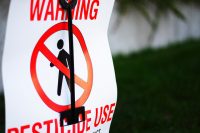Read the glossy website or encounter their expensive marketing materials and lush swag at any upscale international cannabis business conference these days and you get a certain kind of impression. The new, modernist, chic European HQ in central Frankfurt, for example, with its floor-to-ceiling windows and breath-taking view of the city, river and mountains, continues to give that perspective far from home.The company has been at the forefront of the Canadian cannabis industry since 2013 and has subsequently weathered several mergers, buyouts and creative partnerships of all kinds.
But what’s of great interest about Canopy is that its highly slick corporate image is backed up by a solid performance elsewhere to date– and on a number of important, and globally impactful levels. Further, the company’s willingness to think strategically, globally, and take calculated, well-timed risks at the same time proves to be effective.
The Canadian Beginnings
The company has been at the forefront of the Canadian cannabis industry since 2013 and has subsequently weathered several mergers, buyouts and creative partnerships of all kinds. In the process it has also made financial history in the cannabis industry, becoming the first publicly listed cannabis company in the world a year after its founding.
 So much of its iconic corporate history is in fact, ironically fading in the rapid birth of the full on recreational market at home. However, here is the elevator pitch. Born as Tweed, in 2013, in an abandoned former Hershey chocolate plant and the recipient of one of Canada’s first medical cultivation licenses, the company rapidly expanded with increased market access that reform brought. Inevitably, its success also spawned one of its closest competitors (Cannabis Wheaton Income Corp) after co-founder Chuck Rifici was ousted by a unanimous vote of the Canopy board.
So much of its iconic corporate history is in fact, ironically fading in the rapid birth of the full on recreational market at home. However, here is the elevator pitch. Born as Tweed, in 2013, in an abandoned former Hershey chocolate plant and the recipient of one of Canada’s first medical cultivation licenses, the company rapidly expanded with increased market access that reform brought. Inevitably, its success also spawned one of its closest competitors (Cannabis Wheaton Income Corp) after co-founder Chuck Rifici was ousted by a unanimous vote of the Canopy board.
In 2018, Canopy Growth still maintains its reputation as the first Canadian cannabis unicorn, even though its stock price is just half that of close competitor, Tilray.
In Canada, the company has long expanded adroitly beyond its central HQ with strategic partnerships and buyouts that range the gamut of grow and branding opportunities that are becoming increasingly as mainstream as, well, beer. These days, Canopy is well-poised to take advantage of the shifting Canadian regulatory landscape on several fronts.
The first is undeniably medical. The company has made patient access a cornerstone of its continuing market development strategy. In fact, current CEO and original cofounder, Bruce Linton, has recently told the press that in his view the medical market globally is the company’s first and most profitable focus.
No matter how many beer companies come calling. And that is also one of the company’s more notable, if not newsworthy accomplishments.
International Aspirations
However it is on the international side that the company has really distinguished itself. That starts with the early (relatively speaking) and active interest in what was going on far from Canadian shores. Initially in Europe (but not limited to it). And even more centrally, how and where the company expanded its global medical reach.Canopy has spread its influence widely throughout Europe already
That started, from the Canopy perspective, with the decision to buy the small German GmbH called MedCann (now Spectrum Cannabis, the global medical brand of Canopy). Located just south of Frankfurt, an international but small team of globally experienced entrepreneurs managed to obtain the first import license for medical flower from Canada into Germany in the summer of 2016. Guided by the industry knowledge and business savvy if not entrepreneurial zeal that so often leads to naught, Pierre Debs and team faced a market still sceptical of medicinal cannabis domestically, and the burden of being “first.” Canopy was not yet in Europe, but they had more ready access to the market and capital. The Canopy buyout of MedCann was accomplished on December 12, 2016, six months before the first iteration of the German cultivation bid was announced. Canopy later announced that it had become one of the top ten finalists in the first iteration of the now restarted German cultivation bid.
Beyond Germany however, this unique team with deep local and global knowledge also began an immediate expansion policy in Europe and beyond that is still unfolding. Apparently in similar strategy adopted at home in the Canadian provinces, Canopy has spread its influence widely throughout Europe already. With an enormous supply contract from Spain’s Alcaliber and operations in Denmark, the Czech Republic, Poland, Italy and a few more (still currently unnamed) operations rolling out any day, the company is clearly building a solid, strategically dispersed infrastructure that reaches far beyond Europe, with global impact and influence.
Exhibit A? In April of this year, the company launched Spectrum Australia with support from the Victorian government.
Controversies
The biggest controversy facing the company so far, albeit indirectly, involves pesticides. This issue occurred during the acquisition of an outside company called Mettrum. In other words, Canopy inherited the production liabilities of a purchased company. The acquisition, however, which passed the buck to Canopy to fix, was actually an opportunity for Canopy to implement its own high internal production and quality controls throughout Mettrum facilities.
This was not inexpensive or of small impact (it affected 21,000 medical users). In addition to taking a leadership role in addressing their acquisition’s production issues, CEO Linton publicly apologized to affected patients.
The company has also been on the forefront of the banking and financing regulatory problems that have plagued the industry (so far successfully).









